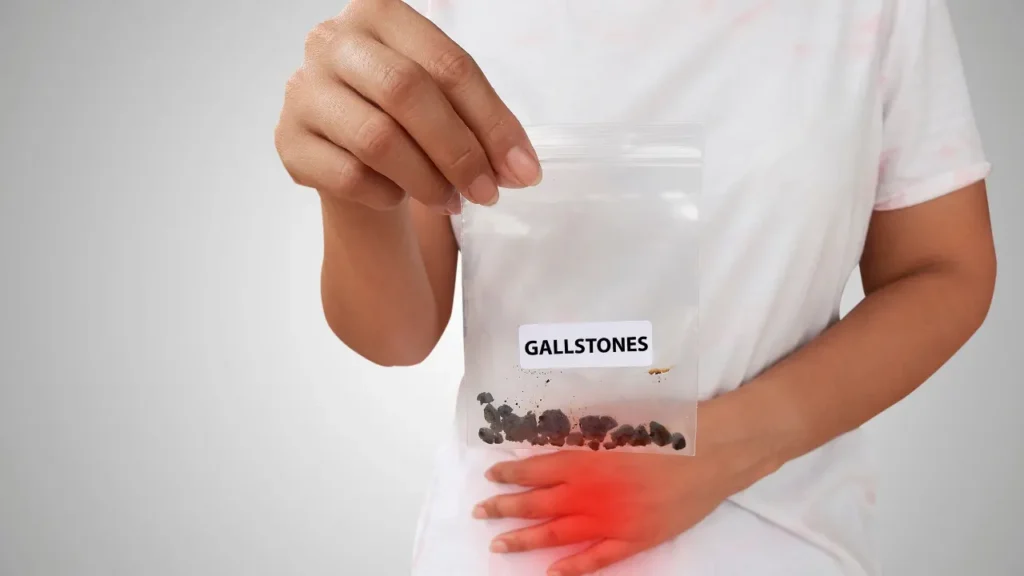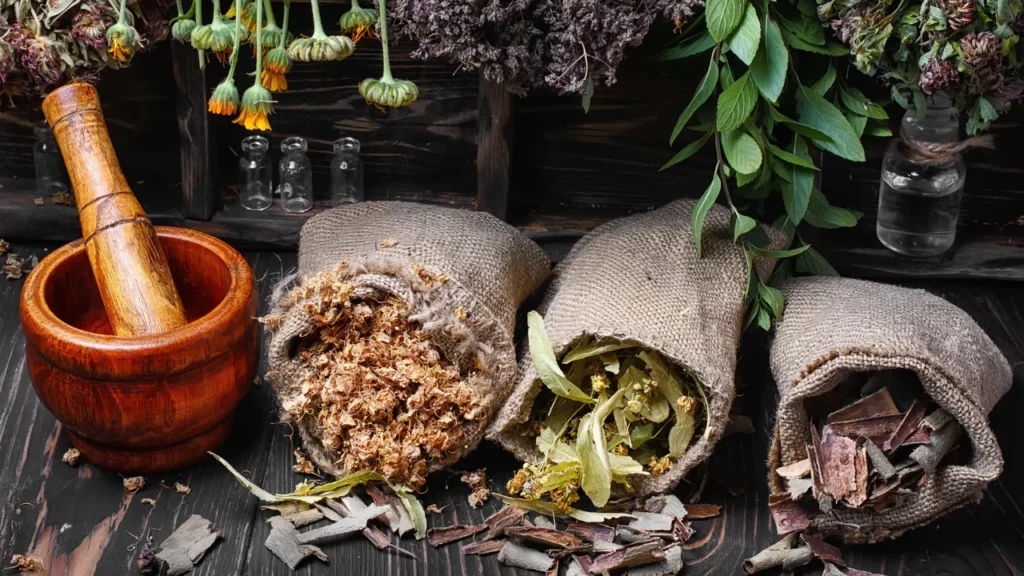The herbal supplement boldo (Peumus boldus) has been utilized for generations in traditional South American medicine. The plant’s leaves, which are packed with phytochemicals, have been used especially for liver protection, gastrointestinal health, and as a natural cure for numerous ailments. Currently, more research is being conducted to assess its effects and safety profile. This article offers a thorough analysis of boldo’s health advantages and suggestions for using it responsibly.
You May Also Like:
Keep Your Brain Young With the 5 Most Powerful Nootropic Supplements
Bright Brain Absolute Focus: A Review of the Facts About This Leading Adrafinil Product
Boldo: Benefits, Dosage, Side Effects, Drug Interactions, and Other Important Information is an original (NootropicsPlanet) article.
Nature of Boldo
This shrub-like tree known as boldo is mostly found native to Chile, Argentina, Bolivia, and Peru. The shrub can reach a height of 6 meters, and bears greenish-yellow flowers, leathery leaves, and purple berries. The leaves of the plant have a strong, pungent scent, with a slightly bitter taste. Boldo has been used for many years in traditional South American medicine, and because of its many health advantages, it has gained appeal throughout the world.
Health Benefits of Boldo
- Digestive Health: Treatment for indigestion, dyspepsia, bloating, and constipation. Its choleretic and spasmolytic characteristics increase gut motility and digestion while reducing discomfort brought on by gastrointestinal problems.
- Liver Protection: Several studies have shown that boldine can reduce liver enzyme levels, prevent lipid peroxidation, and suppress the synthesis of pro-inflammatory cytokines in the liver, demonstrating boldo’s hepatoprotective benefits.
- Antioxidant and Anti-Inflammatory: Antioxidant capabilities of boldine aid in eliminating free radicals and reducing oxidative stress. Damage from inflammation caused by free radicals and oxidative stress has been connected to cancer, diabetes, and cardiovascular disease. Additionally, the anti-inflammatory properties of boldine may be useful in the treatment of long-term inflammatory disorders such as rheumatoid arthritis and inflammatory bowel disease.

Chemistry
Boldo’s potent phytochemical composition, comprising alkaloids, flavonoids, and volatile oils, is responsible for its pharmacological effects. The main bioactive compound in boldo leaves is boldine, an aporphine alkaloid that accounts for the majority of the plants therapeutic effects. Noteworthy alkaloids such as norboldine, laurotetanine, reticuline, and N-methyllaurotetanine are also present. Additionally, boldo contains phenolic substances such as coumarin and chlorogenic acid, along with flavonoids like catechin, quercetin, and kaempferol.
Boldine exerts a positive impact on the body through various mechanisms, including antioxidant, anti-inflammatoery, and choleretic activities. Its ability to scavenge free radicals has been demonstrated to reduce oxidative stress and prevent cellular damage. Boldine has also shown inhibitory effects on the generation of pro-inflammatory mediators, including tumor necrosis factor-alpha (TNF-alpha) and interleukin-6 (IL-6), crucial in the development of chronic inflammatory disorders.
The choleretic effects of boldo (attributed to the stimulation of bile flow) contribute to improved digestion and the absorption of fats and fat-soluble vitamins. This effect is primarily associated with the modulation of nuclear receptors known as farnesoid X receptors (FXRs), which regulate bile acid production, transport, and metabolism. Furthermore, boldine exhibits hepatoprotective effects by regulating liver enzymes and reducing hepatic oxidative stress, thus supporting overall liver health.
Physiological Mechanisms of Action
Boldo’s abundant composition of phytochemicals is responsible for a wide spectrum of health benefits. These mechanisms include:
- Antioxidant: Neutralizes free radicals and stops oxidative stress before leading to cellular damage. This adds to the overall defense against a range of oxidative stress-related illnesses such as; cancer, cardiovascular disease, and neurological conditions.
- Anti-inflammatory: Suppresses inflammatory mediators like TNF and IL-6. May aid in the relief of inflammation-related symptoms by reducing the synthesis of inflammatory chemicals.
- Choleretic Activity: Increases the generation and secretion of bile, which aids in normal digestion and absorption of fats and fat-soluble vitamins. The activation of FXRs, which are essential metabolism of bile acids, underlies this choleretic activity.
- Hepatoprotective: Protects the liver from oxidative stress and inflammation. Boldine’s capacity to regulate liver enzymes, lessen lipid peroxidation, and prevent the synthesis of pro-inflammatory cytokines in the liver are responsible for the hepatoprotective qualities.
- Spasmolytic Activity: Reduces spasms and cramps in the gastrointestinal. The plant’s potential to reduce discomfort and increase gut motility by inhibiting the contractility of smooth muscle cells in the gastrointestinal system may be the cause of this effect.

Optimal Dosage of Boldo
The ideal Boldo dosage can change depending on the supplement’s type and the particular health issue it is intended to treat. In general, the following dosages are advised for adults:
- Dried Boldo leaves: For gastrointestinal and liver-related conditions, a daily dose of <1-2 teaspoons (1-3 grams) of dried boldo leaves, which can be used to make an infusion or decoction, is commonly advised.
- Boldo extract: A daily dosage of 200–400 mg, containing 1–3% boldine, is typically regarded as safe and beneficial for treating a variety of health issues when utilizing a standardized Boldo extract. You can consume the extract as tablets, capsules, or liquid tinctures.
- Tea: To make Boldo tea, steep 1-2 tablespoons of dried boldo leaves for 5–10 minutes in a cup of boiling water. For the majority of people, consuming up to three cups per day is deemed safe.
Before beginning a new supplement regimen, it is imperative to speak with a healthcare provider because the best dosage may depend on a person’s needs and medical history.
Side Effects and Precautions
Boldo is usually regarded as safe when used in the appropriate dosages, although there are some adverse effects and safety measures to take into account:
- Boldo may result in nausea, vomiting, and diarrhea. These side effects are typically minor and go away on their own. It is advised to stop using the product and seek medical advice if symptoms increase or persist.
- Boldo may not be appropriate for people with gallstones or bile duct obstruction due to its choleretic effects, which could exacerbate these symptoms.
- Boldo should not be taken when pregnant or nursing because there is insufficient evidence to support its safety during pregnancy/nursing.
- Before taking boldo, those with liver or kidney problems should talk to their doctor because it may interact with their drugs and exacerbate their conditions.
- High dosages of boldo taken over an extended period of time may cause renal damage, so it’s important to follow the dosage recommendations and speak with a doctor if you have any questions.

Potential Substance Interactions
Certain drugs and substances may interact with boldo, changing their effects or having negative effects. Substances among the possible interations incluide:
- Risk of bleeding: Warfarin, heparin, and clopidogrel are anticoagulants and antiplatelet drugs may interact with boldo to raise the risk of bleeding. Prior to using Boldo with any medications, it is essential to get medical advice.
- Blood pressure-lowering antihypertensive drugs: Boldo may intensify the hypotensive effects of these drugs. Before using Boldo, people who are using antihypertensive medications should closely check their blood pressure and speak with their doctor.
- Substrates for cytochrome P450: Boldo may interfere with the function of several enzymes involved in drug metabolism, including cytochrome P450. The blood levels of drugs that are metabolized by these enzymes may change as a result of this interaction, thereby increasing the risk of side effects or decreasing the drug’s efficacy. Statins, specific antifungal drugs, and some antidepressants are a few examples of medications that could be impacted.
- Diuretics: Using Boldo and diuretics together increases the risk of electrolyte imbalances and increased diuresis. If taking diuretics, it is crucial to talk to a healthcare provider before using boldo.
Responsible Use of Boldo
It is crucial to adhere to the advised dosage recommendations for Boldo and seek medical advice before beginning any new supplement regimen in order to ensure its safe and effective use. Additionally, it’s critical to choose boldo products of the highest caliber from reliable suppliers; as different brands’ supplements may differ in terms of content and purity.
Boldo:
Conclusion
In conclusion, boldo, a South American shrub with a rich traditional medicinal history, offers diverse health benefits, especially for digestive and liver health. Its key compound, boldine, influences antioxidative, anti-inflammatory, and hepatoprotective mechanisms. The varied phytochemical composition enhances overall well-being. Optimal dosage varies by supplement form and health concern, emphasizing repsonsible use. While generally safe, awareness of potential side effects and interactions is crucial, requiring consultation with a healthcare provider. Choosing quality products ensures the safe and effective use of boldo, a natural remedy with ongoing promise.

References:
- Boldo: Uses, Side Effects, Interactions, and Dosage. Retrieved from: https://www.webmd.com/vitamins/ai/ingredientmono-593/boldo
- Boldo (Peumus boldus) – A Review of its Traditional Uses, Phytochemistry, and Pharmacology. Retrieved from: https://www.ncbi.nlm.nih.gov/pmc/articles/PMC5677120/
- Pharmacological Effects of Boldo (Peumus boldus) and Its Phytochemicals. Retrieved from: https://www.researchgate.net/publication/342312647_Pharmacological_effects_of_boldo_Peumus_boldus_and_its_phytochemicals
- Boldo: Benefits, Side Effects, and Preparations. Retrieved from: https://www.verywellhealth.com/boldo-what-should-i-know-about-it-89403
Important Note: The information contained in this article is for general informational purposes only, and should not be construed as health or medical advice, nor is it intended to diagnose, prevent, treat, or cure any disease or health condition. Before embarking on any diet, fitness regimen, or program of nutritional supplementation, it is advisable to consult your healthcare professional in order to determine its safety and probable efficacy in terms of your individual state of health.
Regarding Nutritional Supplements Or Other Non-Prescription Health Products: If any nutritional supplements or other non-prescription health products are mentioned in the foregoing article, any claims or statements made about them have not been evaluated by the U.S. Food and Drug Administration, and such nutritional supplements or other health products are not intended to diagnose, treat, cure, or prevent any disease.


